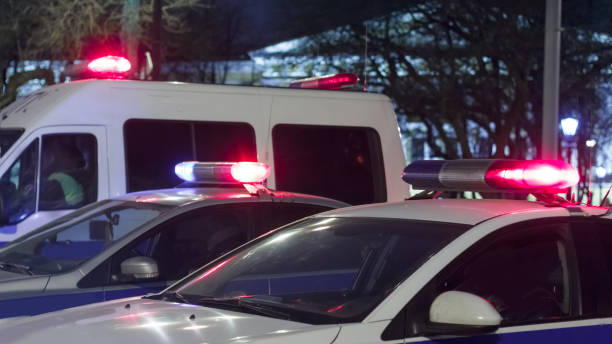Rodney Brown and Jorge Moncivais Charged with Murder in Dallas Shooting of Drew Knowles During Alleged Warrant Execution on Florence Street; Victim Shot Multiple Times Before Crashing into Utility Pole
In a case that has sent ripples through both the law enforcement and private security communities, two men—Rodney Brown, 43, and Jorge Moncivais, 23—have been formally charged with murder following the deadly shooting of 33-year-old Drew Knowles in Dallas. The incident occurred during what the suspects claimed was a warrant execution in the 2700 block of Florence Street, but it ended with Knowles being shot multiple times before crashing his vehicle into a nearby utility pole. The shooting, now the subject of a major investigation, has raised serious questions about the legal authority and conduct of private bounty hunters and investigators operating in high-risk civilian engagements.
According to preliminary reports, both Brown and Moncivais—identified respectively as a bounty hunter and a private investigator—were involved in an enforcement action against Drew Knowles. While details about the nature of the warrant or its legitimacy have not yet been publicly confirmed by authorities, what is known is that the encounter turned deadly. Knowles, reportedly in his vehicle at the time of the incident, was struck by multiple gunshots. Moments later, he lost control of the vehicle and collided with a utility pole, where he was later pronounced dead.
Dallas police responded quickly to the scene and began a homicide investigation. Their findings led to the arrests of Brown and Moncivais, both of whom were booked into the Dallas County jail. Each man is now being held on $500,000 bond. Officials have not indicated whether additional charges may be forthcoming, nor have they ruled out the possibility of accomplices or procedural misconduct during the alleged warrant service.
What makes this case particularly volatile is the fact that neither Brown nor Moncivais were operating under the immediate supervision of a law enforcement agency at the time of the shooting. Instead, their status as a bounty hunter and private investigator places them in a murky legal territory, one where rights to apprehend are often misunderstood and where the use of deadly force is heavily restricted by law. Texas law allows licensed bail enforcement agents to pursue fugitives, but deadly force can only be used under narrowly defined conditions—namely when there is an imminent threat to life or bodily harm.
If the shooting of Knowles occurred without clear and present danger to the lives of Brown and Moncivais, their actions could constitute an illegal killing rather than a justified enforcement. Prosecutors will now be tasked with determining whether the shooting was premeditated, reckless, or criminally negligent, and whether Knowles posed any immediate threat when he was gunned down.
The Dallas Police Department has remained tight-lipped about the broader context of the incident, citing the ongoing nature of the investigation. No statements have been issued yet about the existence of body camera footage, surveillance video, or witness accounts that might shed light on the sequence of events. Similarly, there has been no confirmation on whether the alleged warrant had been officially filed or was recognized by local law enforcement.
For now, the families of both the victim and the accused are left grappling with the consequences. Drew Knowles, only 33 years old at the time of his death, lost his life in a confrontation that continues to raise far more questions than answers. Little has been revealed publicly about his background, whether he was indeed wanted by authorities, or what circumstances led to this deadly encounter. His death, however, is now a focal point in a larger debate about the dangers of privatized enforcement and the potential for abuse or overreach when civilians take law into their own hands under the guise of justice.
The charges against Brown and Moncivais mark a turning point in that conversation. Legal experts and civil rights advocates have long warned about the lack of oversight in private bounty hunting operations, especially in major metropolitan areas like Dallas. While state licensing laws exist, enforcement is inconsistent, and the use of violence in field operations is subject to frequent legal scrutiny. If convicted, both men could face life imprisonment, and their prosecution may set a precedent for similar cases in Texas and beyond.
In the coming weeks, more details are expected to emerge as investigators continue their work and court proceedings begin. For now, the Dallas community watches closely, awaiting clarity on a case that touches on issues of justice, legitimacy, and the use of deadly force outside of traditional law enforcement channels.

Leave a Reply